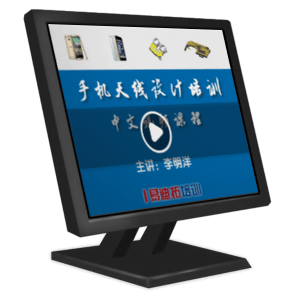- 易迪拓培训,专注于微波、射频、天线设计工程师的培养
请教关于LTE测试文档中的说明
The test case described here will demonstrate this using Band 7 with a low-range channel and a 20 MHz bandwidth.
Since a configuration with the settings Band 7, 20 MHz, and Low Range channel does satisfy Note 2 of TS 36.521-1 Table 6.2.2.3-1, the lower limit is relaxed by 1.5 dB.
Note 2 是这样说的:
For transmission bandwidths (Figure 5.4.2-1) confined within Ful_low and Ful_low + 4 MHz or Ful_high – 4
MHz and Ful_high, the maximum output power requirement is relaxed by reducing the lower tolerance limit
by 1.5 dB
看不懂第一篇文档是怎样得出结论的,20MHZ 信道带宽怎么可能在 4MHZ的范围之内呢?
一个是信道带宽,一个是传输带宽设置,除了1.4M时,刚好是五倍的关系。也不是太清楚。
同求专家解释。
< 关于这个问题,传输带宽是用资源块表示,1RB 180kHz,18RB = 3.24MHz, 我不知道是否还要考虑 RB_Pos, #0, #Mid, #Max, 然后再说是否符合在 Ful_low, Ful_low + 4MHz 或 Ful_up - 4MHz, Ful_up, 的范围。因为20 MHz 的信道带宽,远远超过了 4MHz。 有没有哪位哥哥,对这东西,有过研究啊.... 个人理解: 个人理解: 说是不符合吧所以不能下降 2013年5月的版本,说是符合: 下文接着是:根据TS 36.521-1表6.2.2.4.1-1 Note 2的要求,当低信道测量1RB的情况下.... 申明:网友回复良莠不齐,仅供参考。
RS网站上的September 2011版:
The test case described here will demonstrate this using Band 7 with a low-range channel and a 20 MHz bandwidth. Since a configuration with the settings Band 7, 20 MHz, and Low Range channel does satisfy Note 2 of TS 36.521-1 Table 6.2.2.3-1, the lower limit is relaxed by 1.5 dB.
另一版 December 2010 版:
From TS36.521 Table 6.2.2.4.1-1, 20MHz configuration need to be tested with 2 different RB allocations, 1RB and 18RB. Since ”OB7, 20MHz, low range” does not satisfy Table 6.2.2.3-1 note 2, the lower limit is not relaxed by 1.5dB. Also the RB
position for low range channel shall be RB#0 for both 1RB and 18RB allocations according to Table 6.2.2.4.1-1 note 2.
一个说符合,一个说不符合。
1.频段带宽有1.4到20兆6种,而功率测试带宽是最小带宽、5和20三种,而每个band最小带宽配置不同,如果是1.4或3就小于4兆了。
2.适用于note2的情况总结下基本都是与2G或已经普遍使用的频段,所以在这些band下功率下限可以再下降1.5db,以减小干扰,所以下限就成了4.3db.
1.频段带宽有1.4到20兆6种,而功率测试带宽是最小带宽、5和20三种,而每个band最小带宽配置不同,如果是1.4或3就小于4兆了。
>>CMW500 文档说Band7,channel BW= 20MHz,low rang frequency是符合Note2的。
3GPP文档紧接着的6.2.2.4:
Note 2: For E-UTRA bands not applied with Note 2 in Table 6.2.2.3-1:
- The 1 RB allocation shall be tested at RB#0 for low and mid range, RB #max for high
range test frequency.
- The RBstart of non-1RB allocation shall be RB #0 for low and mid range, RB# (max +1 -
RB allocation) for high range test frequency.
这里是怎么判断一个LTE Band是否是符合Note 2的呢?
Note 3: For E-UTRA bands applied with Note 2 in Table 6.2.2.3-1:
- If the test channel bandwidth is larger than 4MHz, then the 1 RB allocation shall be
tested at both RB #0 and RB #max.
如果LTE Band 符合 Note 2,那么当测试信道带宽在大于4MHz要如何如何设置RB....
- If the test channel bandwidth is smaller or equal to 4MHz, then the 1 RB allocation shall
be tested at RB #0.
- If the test channel bandwidth = (FUL_high - FUL_low) specified by the operating band,
then only one frequency range shall be tested and the 1 RB allocation shall be tested at
RB #0, RB # ⎡ / 2⎤ UL
RB N and RB #max.
- For non-1RB allocation, test frequency is middle range, and the RBstart shall be RB #0.
2.适用于note2的情况总结下基本都是与2G或已经普遍使用的频段,所以在这些band下功率下限可以再下降1.5db,以减小干扰,所以下限就成了4.3db.
www.rohde-schwarz.de/file/1CM94_41c.pdf
下面将以频段7,低信道和20MHz带宽为例演示如何测量最大功率。
测量规范TS 36.251, 表6.2.2.4.1-1 的要求,在20MHz带宽下测量两种不同RB数量设置:
1个RB和18个RB,根据这个配置,频段7, 20MHz 带宽和低信道满足测试规范TS 36.251-1表
6.2.2.3-1中note 2的要求。因此,最大功率的下限下降1.5 dB.
但3GPP TS 36.521-1表6.2.2.4.1-1 Note 2 说的却是不符合的情况:
For E-UTRA bands not applied with Note 2 in Table 6.2.2.3-1:
The 1 RB allocation shall be tested at RB#0 for low and mid range, RB #max for high
range test frequency.
上一篇:求 8960中英文翻译资料
下一篇:手机射频高温高压最大功率FAIL

